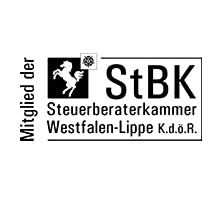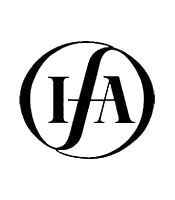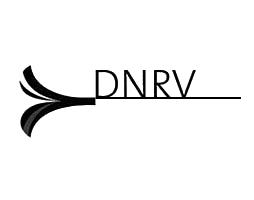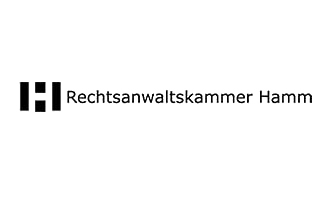# German Income Tax Effects Of Annual Tax Act in 2019
On November 7, 2019, the Bundestag passed the law on further tax incentives for electromobility and amendments to other tax regulations (“Annual Tax Act 2019”).
As the name of the law suggests, it also contains provisions on the use of cars for business purposes and the associated tax incentives for e-mobility.
Electric vehicles as company cars
The government draft only provided for an extension of the halving of the assessment basis for company car taxation for private use of a company electric or hybrid electric vehicle. A reduction in the tax base to a quarter has now even been adopted (due to the Federal Government’s 2030 climate package, which has since been adopted) for certain vehicles that do not emit carbon dioxide and whose gross list price is below EUR 40,000 [ For purchases between 1.1.2019 and 31.12.2030 ]
[ Applies from 1.1.2020]
For externally rechargeable electric and hybrid electric vehicles that do not meet these requirements, the following will apply in future:
If purchased between 1.1.2022 and 31.12.2024, half of the assessment basis if the carbon dioxide emission is a maximum of 50 grams per kilometer or the range of the vehicle using only the electric drive is at least 60 kilometers.
If purchased between 1.1.2025 and 31.12.2030, half of the assessment basis if the carbon dioxide emissions are a maximum of 50 grams per kilometer or the range of the vehicle using only the electric drive is at least 80 kilometers.
Electric utility vehicles and electrically powered cargo bikes
In future, not only electric delivery vehicles (as provided for in the government draft), but also electric utility vehicles and electrically powered cargo bicycles in general will be eligible for the deduction for wear and tear in the year of purchase in addition to the deduction for wear and tear pursuant to Section 7 (1) of the German Commercial Code. 1, a special depreciation allowance amounting to 50% of the acquisition costs can be claimed (§ 7c EStG).
Electric commercial vehicles are vehicles of EC vehicle categories N1, N2 and N3 that are powered exclusively by electric motors that are fed entirely or predominantly from mechanical or electrochemical energy storage systems or from emission-free energy converters. Electrically powered cargo bicycles are heavy-duty bicycles with a minimum transport volume of 1 m³ and a payload of at least 150 kg that are powered by an auxiliary electric motor.
[Applies to vehicles purchased from January 1, 2020].
[ Applies from 1.1.2020]
Bicycles #1
The tax exemption of the non-cash benefit granted from the provision of a company (electric) bicycle by the employer in accordance with Section 3 no. 37 EStG is extended until the end of 2030 (Sections 52 (4) sentence 7, 52 (12) sentence 2 EStG). An extension of the parallel non-consideration of a withdrawal for the private use of a company (electric) bicycle is also provided for accordingly.
[ Applies from 1.1.2020]
Bicycles #2
In addition, a new option for flat-rate wage tax is introduced (Section 40 (2) sentence 1) in the event that an employee is given a company bicycle free of charge or at a reduced price in addition to the wages already owed. This innovation was not yet included in the government draft.
[ Applies from 1.1.2020 ]
Professional driver
A new lump sum of EUR 8 per calendar day has been introduced for employees who predominantly carry out their professional activities in motor vehicles(Section 9 (1) sentence 3 no. 5b EStG). In future, this lump sum can be claimed instead of the actual expenses incurred by the employee in connection with an overnight stay in the employer’s vehicle during a work activity lasting several days. However, if the actual expenses are higher than the lump sum, these can be recognized.
[ Applies from 1.1.2020 ]
Stricter rules for benefits in kind
The draft bill provided for an expansion of the definition of cash benefits as opposed to benefits in kind. After this was removed in the government draft, the tightening is included again in the adopted version (Section 8 (2) and (3) EStG). For example, cash surrogates, subsequent cost reimbursements or earmarked cash benefits can no longer be classified as benefits in kind without further ado. This does not apply to vouchers and cash cards that only entitle the holder to purchase goods or services.
Job ticket
Employer benefits for expenses incurred by employees for travel between home and their first place of work, even if they are not provided in addition to the wages already owed, are now taxed by the employer at a flat rate of 25% (Section 40 (2) EStG). This applies to journeys on public transport between home and the first place of work (e.g. job tickets) as well as private journeys on local public transport. Offsetting the flat-rate taxed allowances against the commuting allowance pursuant to Section 9 para. 1 sentence 3 no. 4 sentence 2 and para. 2 is omitted.
[ Applicable from the day after promulgation ]
Additional meal expenses
The law increases the lump-sum allowances for additional meal expenses in the context of a business trip or double household management. An increase from 24 to 28 euros is planned for absences of 24 hours and from 12 to 14 euros for days of arrival and departure as well as for days of absence without an overnight stay and more than 8 hours. The basic requirement here is that the employee works outside his home and primary place of work.
Further training services
Employer training benefits are tax-exempt (§ 3 No. 19 EStG). This is intended to provide legal certainty that the employer’s further training benefits for measures pursuant to Section 82 (1) and (2) SGB III are not subject to taxation. The tax exemption also applies to further training services provided by the employer that serve to improve the employability of the employee (e.g. language courses or computer courses that are not job-related).
These are measures that enable the employee’s professional skills to be adapted and further developed and thus contribute to better meeting professional challenges. These benefits must not have a predominantly rewarding character.
[ Applicable from the day after promulgation ]
Staff apartment
Due to the development of demand on the housing market, a valuation discount is being introduced for employee housing in high-priced conurbations (Section 8 (2) EStG). Accordingly, the non-cash benefit is not recognized for the apartment provided by the employer for the employee’s own residential purposes. The prerequisite is that the rent paid by the employee incl. ancillary costs are at least 2/3 of the customary local rental value and this does not exceed 25 euros per square meter excluding ancillary costs.
[ Applies from 1.1.2020 ]
Promotion of alternative forms of housing no longer included
According to the government draft, benefits in kind in the context of alternative forms of housing should be tax-free (Section 3 no. 49 EStG-E). This amendment was deleted in the adopted version.
Tax identification number
In future, employees who are only subject to limited income tax liability in Germany will also be assigned a tax identification number (Sections 39 para. 3, 42b para. 1 sentence 1 EStG). This allocation is to be made by the employee at the employer’s permanent establishment tax office. However, employees should be given the option of authorizing their employer to apply for the tax ID for the first time.
The notification letter from the tax authorities is then sent to the employer. In addition, employees with limited income tax liability will in future be included in the annual company income tax adjustment (Section 42b (1) sentence 1 EStG).
[ Applies from 1.1.2020 ]
Income tax registration
The wage tax registration is extended so that the wage tax to be withheld and paid must be stated separately according to the calendar years in which the wages are received or deemed to be received (Section 41a (1) sentence 1 no. 1 EStG). This amendment was not yet included in the government draft.
[ Applies to salary payment periods after 31.12.2021 ]
Fines
The draft law includes an extension of the ban on deducting fines imposed by other EU Member States. Fines, administrative fines and warning fines imposed by courts in other EU member states after December 31, 2018 can no longer be deducted as business expenses (Section 4 (5) sentence 1 no. 8 and no. 8a EStG). Furthermore, the ban on deducting business expenses will also apply to interest on tax arrears in future.
[ Applicable from the day after promulgation ]
Special expenses
Contributions to health and long-term care insurance for one’s own child, which are borne economically (cash or non-cash support) by the legal guardians, are to be taken into account as special expenses for them in future (Section 10 (1) no. 3 sentence 2 EStG). It is irrelevant whether and how much the child earns or receives.
[ Applicable from the day after promulgation ]
Community animal husbandry
A new Section 13b EStG regulates when income from agricultural animal breeding and animal husbandry from cooperatives, from companies in which the shareholders are to be regarded as co-entrepreneurs or from associations is included in income from agriculture and forestry. This innovation was not yet included in the government draft.
[ Applies for the first time to financial years beginning after 31.12.2024 ]
Crowdlending
The law provides for an adjustment of the capital gains tax deduction for new forms of investment. In future, interest resulting from a claim acquired via an internet service platform, such as crowdlending, will also be subject to capital gains tax deduction (Section 43 (1) sentence 1 no. 7c EStG). The domestic operator or the domestic branch office of a foreign operator of this internet service platform acts as the operator in accordance with Art. 6 para. 1 lit. f GDPR. § Section 44 para. 1 sentence 4 no. 1 EStG as the paying body.
[ Applies from 1.1.2020 ]
Fund establishment costs
Contrary to the BFH ruling of 26.4.2018 (IV R 33/15), fund establishment costs include
Fund establishment costs
will retroactively continue to be counted as acquisition costs and not as immediately deductible operating expenses/advertising costs (Section 6e EStG).
In addition to the acquisition costs within the meaning of Section 255 HGB, fund establishment costs also include all expenses to be paid by the investor to the project provider for the acquisition of the asset which a taxpayer acquires alone (individual investment) or jointly with other investors within the framework of a contract pre-formulated by the project provider.
[ Applicable from the day after promulgation ]
Are you interested in this topic?
Learn more about this topic and other exciting and related content on the
info blog of PBS Pekala and Partner
.
You are also welcome to visit the websites of our partner network
- PBL Bandl and Partner mbB – Your competent lawyers in the Paderborn area
- PBS Pekala and Partner mbB –Tax consultancy, regional & international






